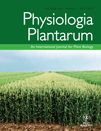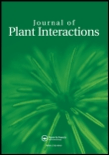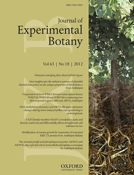
ACTA PHYSIOLOGIAE PLANTARUM
Scope & Guideline
Driving advancements in agricultural productivity and research.
Introduction
Aims and Scopes
- Plant Stress Physiology:
The journal emphasizes research on how plants respond to abiotic stresses such as drought, salinity, and extreme temperatures, focusing on physiological and biochemical adaptations. - Biochemical Pathways in Plants:
Studies investigating the metabolic pathways involved in plant responses to stress, including antioxidant systems and the role of secondary metabolites. - Genetic and Molecular Mechanisms:
Research exploring the genetic basis of plant traits, including gene expression analysis and genetic engineering approaches to enhance stress tolerance. - Innovative Agricultural Practices:
Papers that discuss the application of different agricultural practices, such as the use of biostimulants, organic amendments, and nano-fertilizers, to improve plant growth and resilience. - Plant-Microbe Interactions:
Investigations into how microbial associations, including mycorrhizal and rhizobial partnerships, influence plant health and stress responses. - Postharvest Physiology:
Research on maintaining the quality and extending the shelf life of crops through physiological interventions and treatments.
Trending and Emerging
- Use of Nanotechnology in Agriculture:
Research exploring the application of nanoparticles for enhancing plant growth and stress tolerance is on the rise, highlighting the potential of nanotechnology in sustainable agriculture. - Climate Change Adaptation Strategies:
There is a growing trend towards investigating how plants can be bred or managed to adapt to changing climate conditions, including heat and drought resilience. - Biostimulants and Organic Amendments:
Studies focusing on the use of biostimulants and organic amendments to enhance plant growth and mitigate stress are increasingly popular, reflecting a shift towards sustainable agricultural practices. - Omics Approaches in Plant Research:
The use of transcriptomics, proteomics, and metabolomics to understand plant responses at a molecular level is becoming more prevalent, providing comprehensive insights into plant biology. - Integrated Pest and Disease Management:
Research on integrated strategies that combine biological, chemical, and cultural practices to manage pests and diseases in an environmentally sustainable manner is gaining importance.
Declining or Waning
- Traditional Plant Breeding Techniques:
There has been a noticeable decline in research utilizing traditional breeding methods, as more emphasis is placed on molecular breeding and biotechnological approaches. - Invasive Species Management:
Papers focusing specifically on the management of invasive plant species have decreased, possibly overshadowed by more pressing issues related to climate change and sustainable agriculture. - Basic Physiological Studies:
A waning interest in purely descriptive studies of plant physiology is evident, as researchers increasingly pursue applied studies that address specific agricultural challenges. - Diversity Studies in Non-Model Organisms:
Research on the physiological traits of lesser-studied plant species is receiving less attention compared to model organisms like Arabidopsis and economically significant crops.
Similar Journals

PHYSIOLOGIA PLANTARUM
Fostering Groundbreaking Discoveries in Plant PhysiologyPHYSIOLOGIA PLANTARUM, published by WILEY, is a prestigious journal in the fields of plant science, physiology, and genetics, known for its impactful contributions since its inception in 1948. With an impressive impact factor and a consistent ranking in the Q1 and Q2 quartiles, it stands out in critical disciplines such as cell biology and biochemistry, ranking #24 in Plant Science with a remarkable 95th percentile standing. This journal primarily serves researchers and professionals committed to advancing the understanding of plant functions, responses, and their molecular mechanisms. Its broad scope allows for a diverse array of studies, ensuring that groundbreaking research is accessible to the global scientific community. Although it does not offer Open Access, PHYSIOLOGIA PLANTARUM remains a vital resource for scholars looking to stay at the forefront of plant biology and related fields.

RUSSIAN JOURNAL OF PLANT PHYSIOLOGY
Illuminating the Science Behind Plant LifeRUSSIAN JOURNAL OF PLANT PHYSIOLOGY, an esteemed publication with ISSN 1021-4437 and E-ISSN 1608-3407, is dedicated to advancing knowledge in the field of plant science. Published by PLEIADES PUBLISHING INC in the United States, this journal serves as a critical platform for researchers, professionals, and students aiming to explore the intricacies of plant physiology, biochemistry, and environmental interactions. With a consistent output from 1996 to 2024, the journal holds a commendable position within the academic community, reflected in its Q3 ranking among 516 journals in the Plant Science category (2023) and a competitive 44th percentile ranking in the Scopus database. Although the journal is not Open Access, it continues to attract a diverse readership of scholars eager to publish groundbreaking research. It stands out as a vital resource for anyone engaged in understanding the physiological processes that underpin plant life, thereby contributing to global agricultural advancements and ecological sustainability.

Annual Plant Reviews Online
Connecting Research and Innovation in Plant BiologyAnnual Plant Reviews Online, published by WILEY, serves as a premier academic resource dedicated to the evolving field of plant sciences, including specialties in agronomy, horticulture, and food science. With an impressive Q1 ranking in Horticulture and Q2 classifications in Agronomy, Crop Science, and Plant Science, this journal reflects a high standard of scholarly contribution, evidenced by its positioning in the 75th percentile range among agricultural and biological sciences in leading Scopus rankings. Aimed at researchers, professionals, and students alike, the journal covers a broad spectrum of plant-related topics and trends, aiming to enhance the understanding of plant biology and its applications. Offering timely insights and critical reviews, Annual Plant Reviews Online connects the global community with essential knowledge, supporting advancements in sustainable practices and innovations in agriculture. Researchers and students can access its content seamlessly, contributing to ongoing discussions in plant science and fostering academic growth.

PHYSIOLOGY AND MOLECULAR BIOLOGY OF PLANTS
Transforming Plant Science for a Sustainable FuturePHYSIOLOGY AND MOLECULAR BIOLOGY OF PLANTS, published by SPRINGER, is a vital journal focused on the advancing field of plant science. Featuring research that spans physiology, molecular biology, and their applications in agriculture, this journal is pivotal for academics, professionals, and students keen on understanding plant processes and enhancing crop production. With an ISSN of 0971-5894 and an E-ISSN of 0974-0430, this journal is recognized for its scholarly significance, ranking in the Q3 category in Molecular Biology, Q2 in Physiology, and Q1 in Plant Science as of 2023. The journal maintains a strong position in the Scopus rankings, with notable percentile rankings including 87th in Plant Science. Established in 2000, this publication aims to foster the dissemination of cutting-edge research by providing a platform for open discussion and knowledge sharing about plant physiology and molecular mechanisms. While it does not currently offer open access options, its comprehensive studies and reviews serve as an essential resource for enhancing our understanding of plant biology.

Theoretical and Experimental Plant Physiology
Bridging Theory and Experimentation in Plant PhysiologyTheoretical and Experimental Plant Physiology, published by the Brazilian Society of Plant Physiology, is a leading academic journal dedicated to advancing the field of plant physiology through rigorous theoretical and empirical research. With an ISSN of 2197-0025, this journal has carved a niche within the scientific community, operating out of the prestigious Department of Plant Physiology at UNICAMP, Brazil. Since its inception in 2014, it has continuously provided a platform for high-quality research, achieving a notable impact factor that positions it in the Q2 quartile for both Agronomy and Crop Science and Plant Science categories as of 2023. Moreover, it boasts impressive Scopus rankings, with a percentile ranking of 69th in Plant Science and 68th in Agronomy. The journal embraces open-access principles, making its scholarly content accessible to researchers, professionals, and students dedicated to uncovering the complexities of plant physiology. By publishing innovative studies and critical reviews, it strives to foster a deeper understanding of plant functions and responses, thus contributing significantly to agriculture, biotechnology, and environmental sustainability.

Journal of Plant Interactions
Unveiling the Secrets of Plant InteractionsThe Journal of Plant Interactions, published by Taylor & Francis Ltd in the United Kingdom, serves as a leading open-access platform dedicated to advancing the understanding of plant interactions and their ecological implications. Established in 2005 and transitioning to open access in 2015, this journal focuses on both fundamental and applied aspects of plant interactions, providing invaluable insights for researchers, professionals, and students within the fields of Ecology and Plant Science. With a commendable impact factor and ranked in the second quartile (Q2) for both Ecology, Evolution, Behavior and Systematics and Plant Science, it reflects the quality and relevance of its published research. Researchers aiming to publish innovative studies on plant behavior and ecosystem dynamics will find a welcoming avenue for their work, as the journal is dedicated to fostering open dialogue and sharing knowledge across disciplines.

BANGLADESH JOURNAL OF BOTANY
Nurturing the Future of Botanical ResearchBANGLADESH JOURNAL OF BOTANY is a prominent publication in the field of plant sciences, dedicated to advancing research and knowledge within the botanical community. Published by the BANGLADESH BOTANICAL SOC, this journal serves as a vital platform for researchers and scholars seeking to disseminate their findings related to plant biology, ecology, and conservation practices, particularly within the unique context of Bangladesh's diverse flora. With an ISSN of 0253-5416 and an E-ISSN of 2079-9926, the journal encompasses a wide scope of topics, reflecting interdisciplinary approaches in botanical research. Since its inception, with convergence periods from 1996 to 2001 and from 2003 to 2024, it has garnered recognition, positioned in the Q4 category in the Plant Science field with a ranking of #459/516 in Scopus, indicating its contribution to the field despite its developing impact. Operating within Bangladesh, at the UNIV DACCA DEPT BOTANY, the journal provides a crucial insight into the ecological and agricultural implications of plant studies in the region, catering to the needs of academics, professionals, and students eager to engage with contemporary botanical research.

JOURNAL OF PLANT BIOCHEMISTRY AND BIOTECHNOLOGY
Advancing the Frontiers of Plant ScienceJOURNAL OF PLANT BIOCHEMISTRY AND BIOTECHNOLOGY, published by SPRINGER INDIA, is a leading publication dedicated to advancing research in the fields of plant biochemistry, biotechnology, agronomy, and crop science. With an ISSN of 0971-7811 and E-ISSN 0974-1275, the journal encompasses a wide range of studies aimed at enhancing our understanding of plant biological processes and their applications in agriculture and biotechnology. It has achieved a noteworthy Q2 ranking in Agronomy and Crop Science and Plant Science, as well as a Q3 ranking in Biotechnology, reflecting its quality and relevance in contemporary research. Notably, the journal ranks #166 in Plant Science and #133 in Agronomy, both falling in the top 67th percentile. With a rich history spanning from 1992 to 2024, the journal is committed to providing open access to innovative research findings that bridge the gap between laboratory discoveries and their practical applications in sustainable agriculture. Researchers, professionals, and students will find a wealth of knowledge and inspiration to advance their work in the dynamic field of plant sciences at this esteemed journal.

CANADIAN JOURNAL OF PLANT SCIENCE
Exploring Innovations in Agronomy and HorticultureCanadian Journal of Plant Science (ISSN: 0008-4220, E-ISSN: 1918-1833) is a prestigious publication dedicated to advancing research in the fields of agronomy, horticulture, and plant science. Published by Canadian Science Publishing, this journal has been a cornerstone in the Canadian and international scientific community since its inception in 1973. With a solid presence in reputable databases, it ranks in the Q3 category for multiple disciplines as of 2023, reflecting its impact and relevance within the agricultural sciences. The journal serves as a vital resource for researchers, professionals, and students, encouraging the dissemination of innovative findings and fostering collaboration across disciplines. Although it is not an open-access journal, subscribers gain exclusive access to a wealth of knowledge, with articles aiming to enhance the understanding of plant systems and contribute to sustainable agricultural practices. The Canadian Journal of Plant Science remains committed to supporting the growth of plant-related research and its practical applications in today's changing environmental landscape.

JOURNAL OF EXPERIMENTAL BOTANY
Pioneering research in plant physiology.JOURNAL OF EXPERIMENTAL BOTANY, published by Oxford University Press, stands as a premier journal for researchers and professionals in the fields of plant science and physiology. With an illustrious history dating back to 1950, this journal has established itself as a critical resource for advancing our understanding of plant biology and its applications. It is recognized in the top tier of academic publishing, reflected in its Q1 rankings in both Plant Science and Physiology for 2023, and boasts impressive Scopus rankings—placing it in the 96th and 91st percentiles of its respective categories. Though not an open-access journal, it ensures widespread access to groundbreaking research aimed at unraveling the complexities of plant functions and adaptations. As we look toward 2024, the JOURNAL OF EXPERIMENTAL BOTANY continues to play an essential role in fostering innovation, collaboration, and education within this vital area of science.